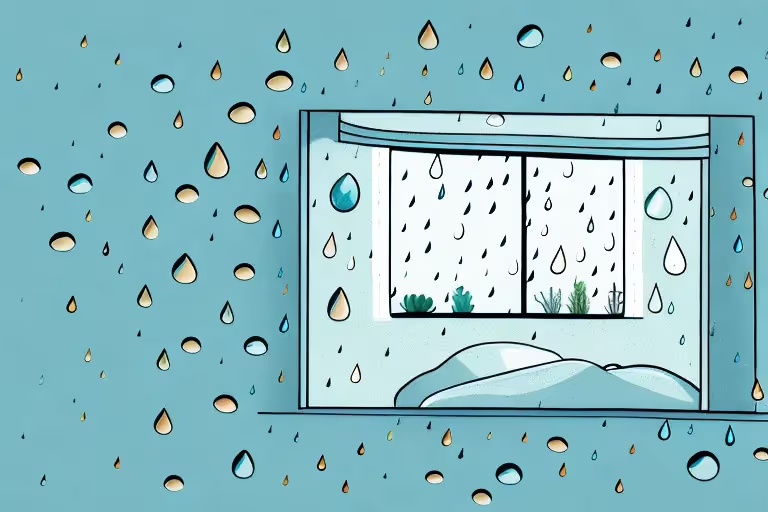Deep meditation is a powerful practice that allows us to reach a state of profound relaxation and inner peace. In today's fast-paced world, where stress and anxiety are all too common, deep meditation offers a much-needed retreat for our minds and bodies. By diving into the depths of our consciousness, we can tap into a limitless wellspring of tranquility and find solace amidst the chaos.
Understanding the Concept of Deep Meditation
At its core, deep meditation is about achieving a state of focused awareness and calmness. It involves directing our attention inward, away from external distractions, and immersing ourselves in the present moment. Unlike other forms of meditation, deep meditation goes beyond the surface levels of relaxation and delves into a profound state of stillness.
Deep meditation is a practice that has been embraced by various cultures and spiritual traditions for centuries. It is often associated with the Eastern philosophies of Buddhism and Hinduism, where it is seen as a means to attain enlightenment and connect with the divine. However, in recent years, deep meditation has gained popularity in the Western world as well, as people recognize its numerous benefits for mental and physical well-being.
The Science Behind Deep Meditation
Recent studies have shed light on the physiological benefits of deep meditation. Researchers have observed that during deep meditation, the brain enters a state of coherent neural activity known as "neural synchrony." This synchronized brain activity leads to increased alpha and theta wave activity, which are associated with deep relaxation and heightened creativity.
Moreover, deep meditation has been found to have a positive impact on the structure and function of the brain. MRI scans have shown that regular deep meditation practice can increase the thickness of the prefrontal cortex, the part of the brain responsible for executive functions such as decision-making and emotional regulation. This suggests that deep meditation may enhance our cognitive abilities and emotional resilience.
Furthermore, deep meditation triggers a physiological response known as the "relaxation response." This response counteracts the effects of stress by lowering blood pressure, reducing heart rate, and decreasing the production of stress hormones. It promotes a state of deep relaxation and rejuvenation, allowing the body to heal and restore itself.
Differentiating Deep Meditation from Other Forms
While different meditation practices share common elements, deep meditation stands out for its profound impact on our mental and physical well-being. Unlike mindfulness meditation, which focuses on being present in the moment, deep meditation takes us beyond the present moment and into a state of profound peace.
Deep meditation is often characterized by a sense of timelessness and transcendence. It allows us to transcend our ordinary thoughts and perceptions and tap into a deeper level of consciousness. In this state, we may experience a sense of unity with the universe or a profound connection with our inner selves.
Moreover, deep meditation is not limited to sitting in silence. It can be practiced in various ways, such as through chanting, visualization, or focusing on a specific object or mantra. The key is to find a method that resonates with us and allows us to enter a state of deep relaxation and inner stillness.
In conclusion, deep meditation is a powerful practice that offers numerous benefits for our mental, emotional, and physical well-being. It allows us to cultivate a state of focused awareness and calmness, leading to increased relaxation, creativity, and overall well-being. Whether we seek spiritual enlightenment or simply want to find a moment of peace in our busy lives, deep meditation can be a transformative tool for self-discovery and personal growth.
The Benefits of Deep Meditation
Deep meditation offers a wide array of benefits that encompass both our physical and mental health. By incorporating deep meditation into our daily lives, we can experience an overall improvement in our well-being.
Physical Health Benefits
Studies have shown that deep meditation can reduce the risk of heart disease by lowering blood pressure and improving cardiovascular health. When we engage in deep meditation, our body enters a state of deep relaxation, which helps to reduce stress and tension in our muscles. This, in turn, promotes better blood circulation and oxygenation throughout the body, leading to improved cardiovascular health.
In addition to its cardiovascular benefits, deep meditation also promotes better sleep. When we meditate deeply, our mind becomes calm and our body relaxes, making it easier for us to fall asleep and stay asleep throughout the night. This quality sleep not only helps us feel more rested and energized during the day but also supports our immune system. During deep sleep, our body repairs and rejuvenates itself, strengthening our immune system and making us less susceptible to illnesses.
Furthermore, deep meditation enhances our overall physical vitality. When we meditate deeply, we enter a state of deep relaxation and tranquility. This state allows our body to conserve energy and redirect it to areas that need healing and restoration. As a result, our physical vitality increases, and we feel more energized and rejuvenated.
Mental Health Benefits
Deep meditation is a powerful tool for managing stress, anxiety, and depression. When we meditate deeply, our mind becomes calm and our thoughts become more focused. This allows us to detach from our worries and anxieties, giving us a sense of peace and tranquility. Regular practice of deep meditation can help us develop a greater sense of inner calmness and resilience, enabling us to better cope with the challenges and pressures of daily life.
In addition to stress reduction, deep meditation also helps to release negative emotions. When we meditate deeply, we become more aware of our thoughts and emotions. This heightened self-awareness allows us to observe our negative emotions without judgment and let them go. By releasing these negative emotions, we create space for more positive and uplifting emotions to arise, leading to a greater sense of emotional well-being.
With regular practice, deep meditation can enhance our focus, concentration, and memory. When we meditate deeply, we train our mind to stay present and focused on the present moment. This mental discipline carries over into our daily lives, allowing us to concentrate better on tasks and improve our memory retention. Deep meditation also stimulates the prefrontal cortex, the part of our brain responsible for executive functions such as decision-making, problem-solving, and self-control. As a result, our cognitive abilities are enhanced, and we become more efficient and effective in our daily activities.
Furthermore, deep meditation fosters a greater sense of self-awareness. When we meditate deeply, we become more attuned to our thoughts, emotions, and sensations. This heightened self-awareness allows us to gain insights into our patterns of behavior and thought, enabling us to make positive changes in our lives. Deep meditation also promotes emotional stability by helping us regulate our emotions and respond to situations with greater clarity and equanimity.
Preparing for Deep Meditation
Before diving into the depths of deep meditation, it is crucial to create a suitable environment and gather the essential tools.
Creating a Suitable Environment
Find a quiet and secluded space where you can meditate without any interruptions. Clear away any clutter and create a peaceful ambiance with soft lighting and calming scents. It is also helpful to sit on a comfortable cushion or chair that supports proper posture.
Essential Tools for Deep Meditation
Deep meditation can be enhanced with the use of certain tools. Consider using soothing background music or nature sounds to create a tranquil atmosphere. You may also find it helpful to incorporate essential oils or candles for relaxation. Additionally, using a meditation app, such as the Aura Health App, can provide guidance and support on your meditation journey.
Techniques for Achieving Deep Meditation
There are various techniques and approaches to deep meditation. By exploring different methods, you can find the one that resonates most with you.
Breathing Techniques
One powerful way to enter a deep meditative state is through conscious breathing. Focusing on your breath and using deep, controlled inhales and exhales can help quiet the mind and induce a state of deep relaxation.
Visualization Techniques
Another effective method for deep meditation is visualization. By visualizing peaceful and serene scenes, such as a tranquil beach or lush forest, you can engage your senses and transport your mind to a state of deep calmness and tranquility.
Overcoming Challenges in Deep Meditation
While deep meditation offers profound benefits, it is not without its challenges. It is important to acknowledge and address these challenges to fully embrace the practice.
Dealing with Distractions
During deep meditation, it is common for distracting thoughts to arise. Instead of resisting or fighting these thoughts, we can learn to observe them without judgment and let them pass by. By gently returning our focus to the present moment and our breath, we can navigate through the distractions and reestablish our deep meditative state.
Handling Emotional Blocks
At times, deep meditation may bring up unresolved emotions or emotional blocks. It is essential to approach these emotions with compassion and non-judgment. By acknowledging and accepting these emotions, we can process and release them, allowing for a deeper sense of emotional well-being.
Deep meditation is a transformative practice that empowers us to unlock inner peace and profound relaxation. By incorporating deep meditation into our daily lives, we can experience heightened well-being and a greater sense of balance. Discover the power of deep meditation today, with the Aura Health App, and embark on a journey of self-discovery and tranquility.
Aura is Your All In One App for Meditation, Mindfulness Wellbeing
Find peace every day with one app for your whole well-being. There is no one-size-fits-all solution to mental well-being. Aura is the first all-in-one wellness app that learns how to best help you. Discover an endless library of expert-created tracks for your well-being, all taught by the world’s best coaches, therapists, and storytellers. With Aura's personalized recommendations, you can find peace every morning, day and night.



.webp)






.avif)

%20(1).avif)


.avif)
.avif)
.webp)


.avif)


















































































































.avif)

















.svg)









